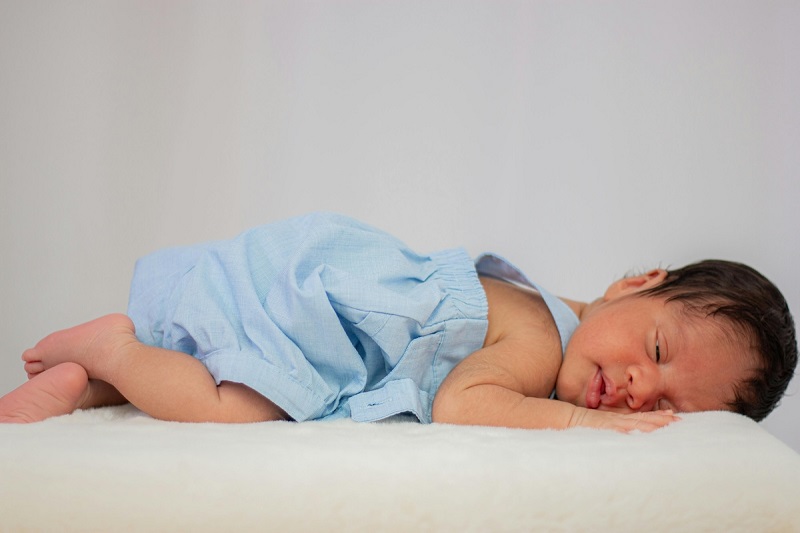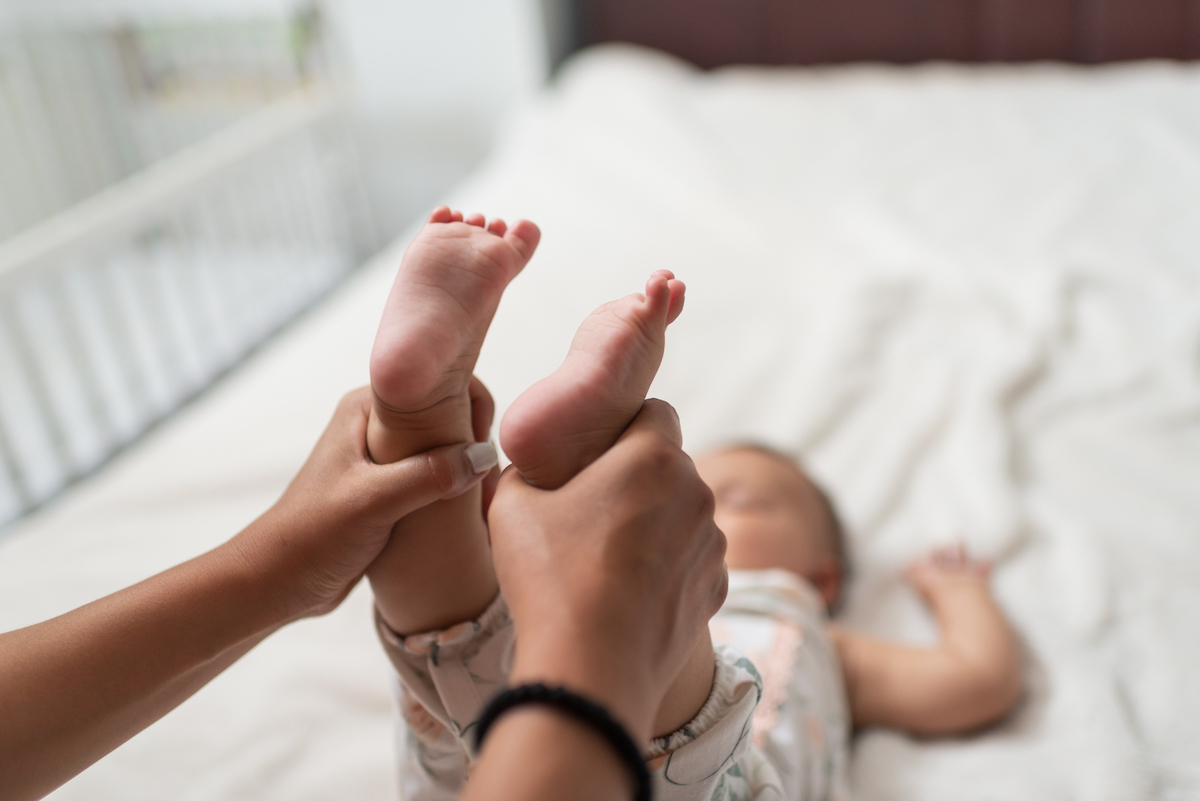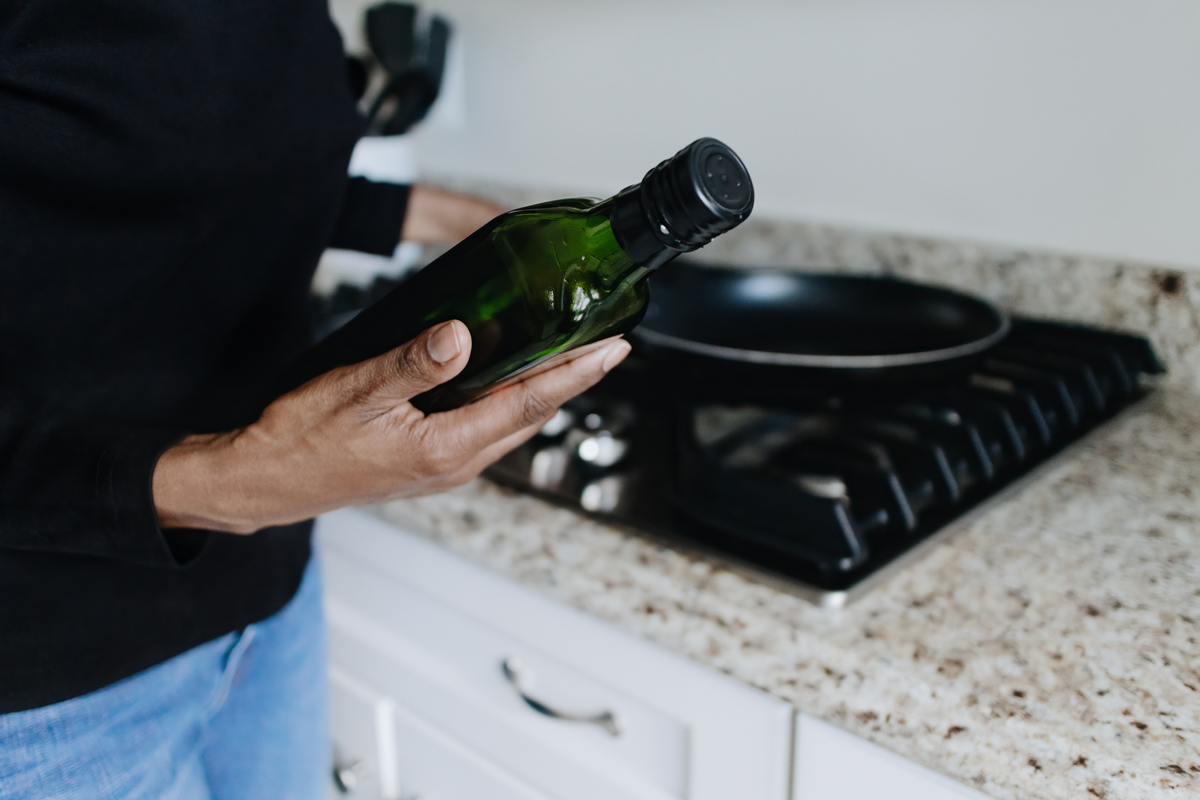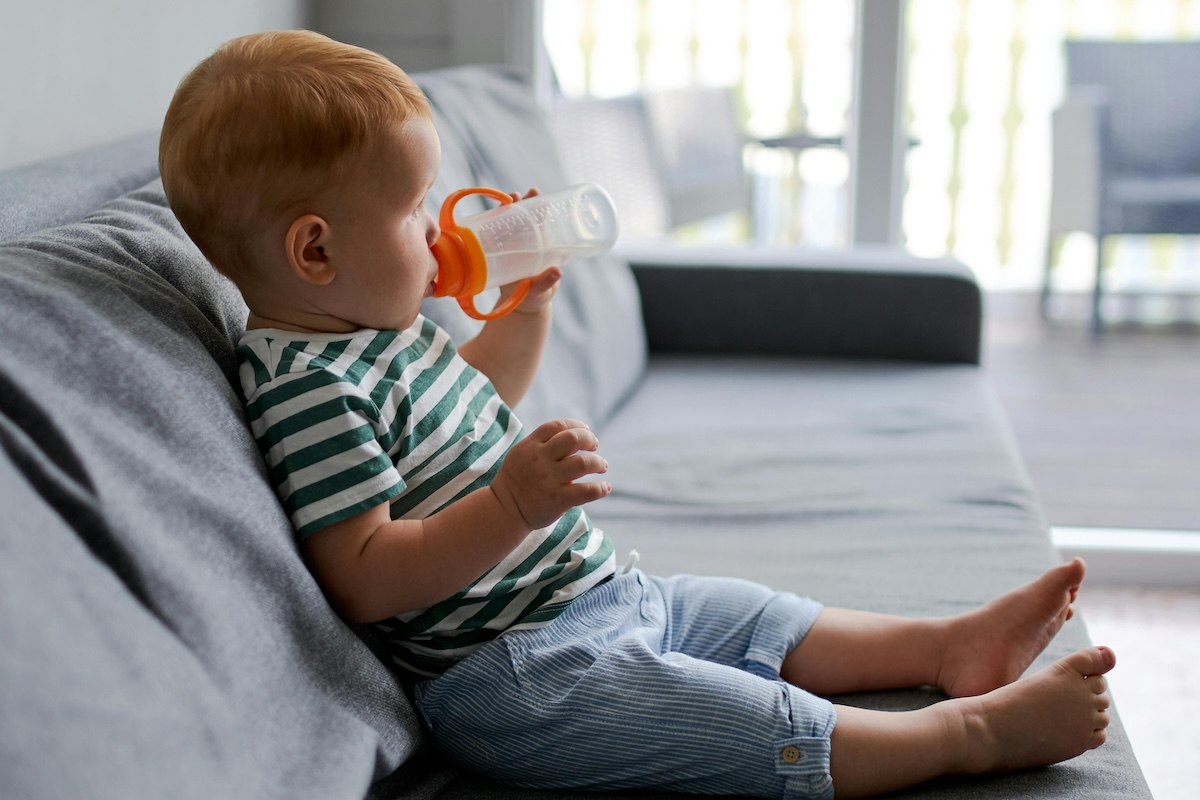Can you help me understand the data/safety around stomach sleeping once a baby can roll over? We always put our 4-month-old to sleep on her back, but she often rolls to her stomach and sleeps there, and she can’t yet roll front-to-back. Our pediatrician says to keep rolling her back over when we see it until she’s a year old. Most things I’ve read say you can leave them there if they can roll both ways on their own, but I’m stumped about this middle stage — I want her to be safe, but I also can’t watch the crib all night. How can I best understand/balance the data, recommendations, and feasibility here?
—Christina
To answer this question, we should ground it in the data we have and the data we do not.
- We know that putting babies to sleep on their backs, as a policy, lowers the risk of sudden infant death syndrome. There is a lot of evidence supporting this, including overall trends and detailed data about what happened when the advice changed suddenly in Denmark. Overall, back sleeping is a crucial part of safe sleep, but this advice is about how you place your baby to sleep, not about rolling them.
- We know that 75% of SIDS deaths occur between months 1 and 4, and 90% by 6 months. We also know that there are factors that raise the risk of SIDS, like complications at birth. For healthy infants over 4 months, the risk of SIDS is extremely small.
From these facts alone, you could infer that your child is at very low risk if you put them to sleep on their back, even if they roll over.

Sleep advice, though, often targets safety above virtually anything else. The advice seems to stem from the assumption that there is no downside to having your baby sleep on their back. Of course, there is a downside to staying up all night rolling them back over. For this reason, the American Academy of Pediatrics has softened its stance on this and suggests that once the baby can roll both ways, it is safe to leave them.
Your baby can only roll one way, which is a slightly different situation. However, the fact that they can roll at all strongly suggests good head control and makes the already unlikely SIDS threat even less likely.
The fact is that the risks here are extremely low (see above), and the cost of seriously monitoring for back sleeping is very high (one parent would need to be awake at all times, watching the monitor). We should appropriately weigh these tradeoffs when giving guidance.
Community Guidelines



















Log in
I was in the same position with my son at 4 months, I had seen him accidentally flip from stomach to back once or twice but I didn’t know if he could purposefully since he loved tummy time and never wanted to flip to his back. Our pediatrician recommended trying to teach him to flip to his back during tummy time, which only kind of worked, but he was lunge crawling soon after so it was a short time that I was trying to flip him back at night and never really seemed worth it!
My 4.5-month-old is in the same boat – only rolling back to front. I couldn’t possibly flip her over every time, plus she is sleeping better for naps and at night on her stomach.
Imagine my surprise at reading this after spending the night flipping over my 5 month old who’s in the same in-between rolling stage. Thank you and hoping for more restful nights ahead!